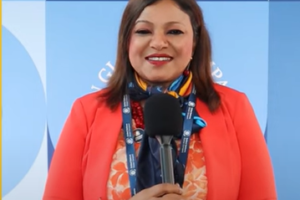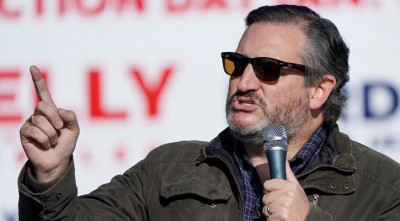Kyrgyz President Sooronbai Jeenbekov resigned on Thursday after days of unrest following a disputed election, saying he wanted to prevent clashes between security forces and protesters who have demanded his removal from office.
He becomes the third president of the small Central Asian nation since 2005 to be toppled in a popular uprising.
Kyrgyzstan, a Russian ally that borders China, has been in turmoil since the Oct 4 parliamentary election, which the opposition rejected after Jeenbekov’s allies were declared the winners.
In a statement, Jeenbekov said he feared violence might break out if protesters carry out a threat to march on his compound.
“The military and security forces will be obliged to use their weapons to protect the state residence. Blood will be inevitably shed. I urge both sides not to fall for provocations,” he said.
“I do not want to go down in Kyrgyzstan’s history as a president who shed blood and shot at his own citizens.”
After the election, opposition supporters took to the streets and seized government buildings, prompting the authorities to annul the vote. Jeenbekov announced last week that he would resign, but this week he delayed his exit, saying he would stay in office until a new election was held.
On Wednesday, Jeenbekov accepted parliament’s choice of Sadyr Japarov, a nationalist whose supporters freed him from prison last week, to be prime minister. Japarov and his followers have demanded Jeenbekov leave office.
“NO SPIRIT”
Following Jeenbekov’s resignation, parliament speaker Kanatbek Isayev would assume presidential powers. Should he also resign, the powers would pass to Japarov.
Hundreds of Japarov’s supporters were rallying some 700 metres away from the presidential residence. As news of Jeenbekov’s resignation reached them, they started chanting “Parliament must go!” and “Isayev must go!”.
The prime minister’s spokesman declined to comment on whether Japarov would now press the speaker to stand down.
Dastan Bekeshev, a lawmaker who supports neither Jeenbekov nor Japarov, told Reuters by telephone: “The president couldn’t hold out. He’s very weak. No spirit. It’s not clear what happens next, nobody can tell what is going to happen.”
Kyrgyzstan hosts both a Russian military base and a large Canadian-owned gold mine. Moscow, which considers the former Soviet space to be its sphere of influence, had said it would be responsible for ensuring stability in Kyrgyzstan and warned that it could slide into chaos.
Russia is also dealing with instability in three other ex-Soviet states: Belarus, where a disputed election has triggered protests against President Alexander Lukashenko, and Armenia and Azerbaijan, which are fighting over control of an enclave.





















